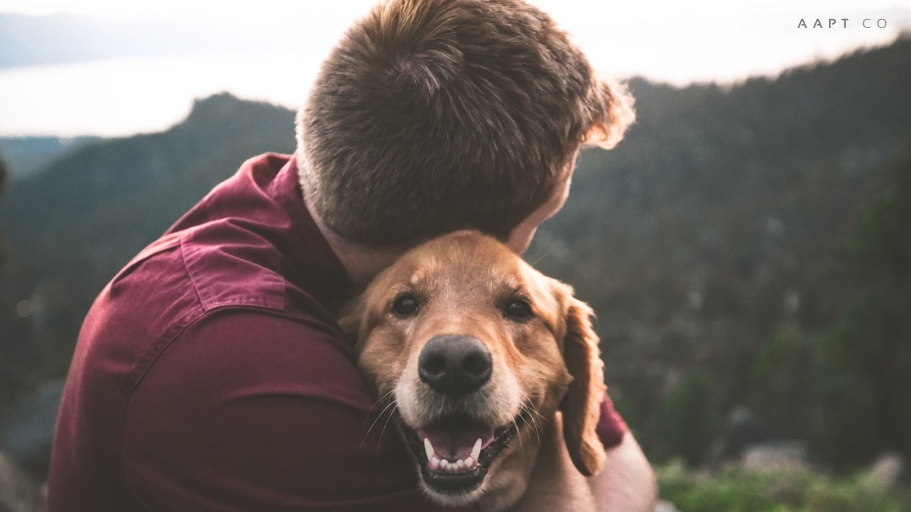How to Choose The Best Dog Trainers in Huntsville, Alabama

Good trainers understand how to read dog body language and vocalizations, as well as that unwanted behavior often stems from unfulfilled needs. Not only that, but they’ll help you carry over those skills into the home.
To learn how to find the trainer for you and your furry friend, read about the following variables to investigate thoroughly.
1. Experience
Experienced dog trainers tend to be better at providing training services. Their skill set allows them to solve behavior issues or teach advanced training methods such as agility, tricks, or nose work.
When speaking with a trainer, ask about their background and length of experience in dog training. A good dog trainer stays current by reading books, watching DVDs, attending seminars or classes themselves as well as keeping abreast with industry changes and staying abreast of new methods that come out. Dog training is an ever-evolving field and new methods emerge all of the time (https://www.instructables.com/Basic-Obedience-Training-for-Dogs/); so, an effective trainer should be able to explain which approaches she uses and why they do them.
If you observe a trainer during her class, check to make sure she is comfortable working with both dogs and their owners. A good trainer should make sure all students and dogs feel welcome, safe, and are having an enjoyable experience.
2. Certifications
Trainers certified through national programs have more experience and knowledge when it comes to dog training; however, this does not guarantee they will train in an ethical and humane manner or assist with specific issues. Be sure to verify their credentials as part of your decision process.
As part of your interview process with any trainer, make sure you inquire about their experience and any problems they have addressed for others. For example, if your pup has separation anxiety or on-leash reactivity issues, look for someone with experience addressing such challenges.
Make sure your trainer welcomes all members of the family and children as part of the dog training team, since everyone’s contribution can have an effect on how far the dog comes in their progress.
When considering hiring a trainer, any use of language which sounds harsh or inhumane should be seen as a warning sign. It could indicate they don’t subscribe to science-based methods of training, or are using outdated theories and techniques which have since been disproven by modern trainers. As part of your due diligence, observe a class to see how the trainer interacts with their students and their dogs – this is an effective way of evaluating potential trainers.
3. Personality
Due to no licensing requirements for dog trainers, anyone can pose as one and charge money for training your pup. Unfortunately, it can also be detrimental for both you and your pup, with inappropriate trainers using improper or even aversive techniques which cause more problems than they solve, which is why I recommend searching “the best dog training near me” and reading reviews carefully. Be wary if there seems to be any noticeable “shifts” in their philosophy and methods of teaching your canine friend.
Good trainers understand that no two dogs are alike and strive to meet each one individual’s personality and learning speed needs. An appropriately trained dog is more likely to stay with its owner, so having someone on board who can manage problem behaviors constructively is also paramount.
Well-trained dogs allow families to include them in their activities and make life simpler for everyone involved. A poorly behaved pup may get left out on camping trips, ignored in the backyard, or sent away when guests arrive at your house if he behaves badly. Paying extra for training could save you heartache – an ineffective owner may try using outdated methods to train an aggressive or fearful pet only to be forced into surrendering it for adoption later.

4. Reputation
Reputation can play an essential part in selecting a dog trainer. Many trainers offer online reviews which give an indication of what their services entail and how others perceive them; it’s wise to read through these and look out for any red flags or potential danger signals that appear.
If there are any trainers on your list that leave any red flags, it would be prudent to eliminate them immediately. Examine their training methods closely – for instance, some might utilize positive reinforcement while others use more forceful methods. Choosing one who uses positive reinforcement should usually be your top pick.
Find out how experienced a trainer is by asking them for references, then following up with those people to see if they were satisfied with their training experience. It may also be beneficial to visit their kennel and observe how dogs there are being trained – this will give an indication of their level of care and attention towards their clients and their canines.
5. Fees
Trainers typically charge various rates depending on their level of expertise and reputation, training facility size and class sizes, as well as any overhead costs such as equipment or specialized tools that might incur. Before starting the lesson they should provide an estimate.
Trainers should provide clear explanations for all methods they employ when teaching dogs, such as choke chains or electronic collars, in order to ensure you understand them fully (according to this site). This is especially important if they employ forceful training methods like choke chains.
A great dog trainer understands that behavior problems can stem from various sources. He or she will take the time to discover why your pup is acting out, and then teach you how to address these issues using positive reinforcement – helping your canine back on track and preventing future behavioral issues from emerging.
Choosing a professional who cares about helping both of you have an enjoyable relationship is worth investing in! If you need assistance finding one of these professionals, ask friends and family members for recommendations or search online. Choosing an ideal trainer could make a tremendous difference both personally and for your pup; choosing wisely could mean having an enjoyable life both inside of your own homes or when out on walks!
You may like this
Recommended For You
Keeping Your Dog Happy and Healthy Indoors
Most Inside
Most Inside offers high-quality recommendations and valuable updates to enhance all aspects of your life, providing premium guidance and enriching experiences.




